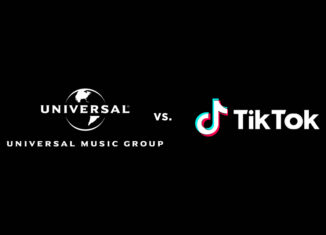
By: Sydney Steinfeld
The ongoing dispute over royalties between Universal Music Group (UMG) and TikTok has escalated significantly as songs published by UMG are now being removed from the platform. This conflict began earlier this month when recordings owned or distributed by UMG were first taken down, but it has now expanded to include a larger number of songs, including those published by the company.
At the heart of this issue is the failure to renew the licensing agreement between UMG and TikTok, which expired on January 31. This disagreement has led to a heated exchange of words between the two parties. On one side, we have UMG, the world’s largest music company, and on the other, TikTok, which has been the most influential platform for promoting music over the past five years.
The impact of this latest move is significant, affecting a wide range of recordings, including those not issued by a UMG-owned label and those involving artists who have collaborated with songwriters under contract to Universal Music Publishing Group (UMPG). Videos featuring these songs must either be removed from TikTok or have their music muted.
The situation is complicated by the fact that artists and songwriters may have different agreements in different regions. UMPG represents a vast array of top creators, including Adele, Justin Bieber, Mariah Carey, Elton John, Metallica, Taylor Swift, and many others. Determining which songs are affected and who controls them is a challenge.
There is disagreement between UMG and TikTok regarding the extent of UMG’s control over songs on the platform. While UMG claims a majority share, TikTok suggests a smaller percentage, between 20% and 30%. Despite the removal of UMG music, TikTok claims to have seen no decline in users.
In response to UMG’s claims about fair compensation for artists and songwriters, TikTok accuses UMG of prioritizing greed over the interests of creators. TikTok asserts that it has reached “artist-first” agreements with every other label and publisher, highlighting what it sees as UMG’s self-serving actions.
The impact of this heated debate on artists and songwriters is significant, as they lose a powerful platform for promoting their music and potential royalties. The resolution of this standoff remains uncertain, and the situation reflects larger issues surrounding artist compensation, licensing agreements, and the growth of digital music platforms.